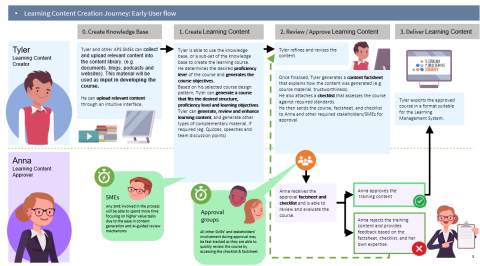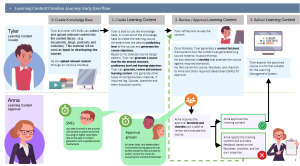By Lisa Howdin, Capability Architect | APS Digital Profession

According to the Future Skills Organisation the surging demand for digital skills is pushing Australia towards a critical shortage of over 370,000 digital experts and digitally enabled workers by 2026.
Over the last five years, the workforce has transformed, with growth in demand for digital skills across all roles – this trend shows no signs of slowing down. There is a projected 47 percent growth in the digital workforce. There is also increasing use of digital tools in jobs across the economy as more workers need to become digitally enabled.
The APS employs approximately 150,000 people working in over 100 agencies across a variety of locations, from the Northern Territory to Antarctica, in capital cities, regional and remote areas and overseas. So, we are a large employer in Australia facing many of the same issues as industry.
As the APS continues its drive towards digital government in a digital economy, automation and digital transformation will alter how APS employees work, and the skills they need.
We need to:
- increase the digital and data literacy of all APS employees,
- increase the number and capability of digital professionals in the APS,
- modernise SES management tools and methods,
- provide leaders with skills for managing high skilled technical specialists.
Public service employees need to understand the crucial contribution of digital technologies as a strategic driver to:
- create open, participatory and trustworthy public sectors,
- to improve social inclusiveness, and
- to bring together government and non-government bodies and develop innovative approaches to contribute to national development and long-term sustainable growth (see Digital-Government-Strategies-Welfare-Service.pdf (oecd.org)).
There are many tools already available on the internet to do this however we need to rapidly develop courses to help staff understand use of these in the APS context.
The DTA and APSC are working to uplift digital skills across the public sector to meet the long-term capability needs and help agencies better design and deliver products and services for the Australian community.
One way in which we are doing this is by working with IBM on a pilot to assess the quality and value of using AI to create learning materials to uplift digital skills.
In December 2023, the APSC, IBM and other government stakeholders collaboratively participated in a 6-week pilot engagement to design, build and test a prototype solution for generating digital learning content using the latest AI capabilities. The AI generation will not be used for decision making, and all AI generation will be transparently linked to original knowledge sources.
The purpose of this pilot was to develop service and technology blueprints for the quick creation and deployment of high-quality learning materials on digital topics at scale and determine appropriate product ownership.
To support this objective, the DTA, APSC and IBM agreed there might be value in delivering a solution that can create curated, approved courses for public servants from Australian government copyrighted content (Digital Service Standard, ICT procurement, etc.) and IBM materials.
As part of the pilot IBM delivered three online industry experience sessions covering topics central to the uplift of contemporary management skills. These sessions shared IBM’s experience and facilitated multi-agency discussion around alignment and planned future actions. The content of these sessions is to be used to create a course for APS SES.
For the pilot, we had APS SMEs collect and upload relevant, publicly available content into the content library used as input in developing the course.
Based on the selected course design pattern, course creators could generate a course that fits the desired structure, proficiency level and learning objectives. The creators could generate, review and enhance learning content, and generate other types of complementary material such as quizzes, speeches and team discussion points.
The content output could be revised until the creator is satisfied with the content for the desired proficiency level of the course and generated course objectives.
When the creator is satisfied, the application generates:
- a content factsheet explaining how the content was generated showing where the content was sourced from,
- an assessment of the course against required standards.
The application produced by the pilot will be retained on IBM’s cloud services until the end of March. To see the demo, final report and discuss, join or use the Digital Profession




